(DGR reviews the new album by Enshine.)
Jari Lindholm is one of those musicians who surrounds himself with incredible talent, having been involved now in a handful of projects over the years and beginning to find himself having multiple releases within one year. Two of the projects that he is a part of are two-man melo-doom groups. Though they lie on different sides of a very finite spectrum, both are still playing a brand of ethereal doom that has always felt decidedly European, even as more groups in North America seem to be mastering it recently.
The first release of these two-man collaborations hit earlier this year, with Exgenesis releasing its first EP in the form of the soul-crushing bleakness of Aphotic Veil. Exgenesis sees Lindholm paired with musician Alejandro Lotero for a project that spans a pretty good chunk of the globe.
October delivered the second release from the other two-man regime in the form of Enshine’s Singularity, bringing about the reunion of Lindholm and French musician Sebastien Pierre of doom groups Inborn Suffering, Cold Insight (another project I’ve been keeping my eye on), and the decidedly faster and more experimental melo-death group Fractal Gates, as well as the creator of a handful of solo releases, including multiple covers of songs from the Mass Effect series of videogames.
Enshine’s 2013 debut Origin came as a pleasant surprise, offering a different take on the somewhat standard cold and wintery melo-doom fare, thematically more oriented toward sci-fi and with a sparing usage of keyboard work, that ranged between its colder forebears and something that would fall in right alongside a movie soundtrack.
Given Lindholm and Pierre’s histories with their other bands, the pair coming up with a masterful take on all things melancholy shouldn’t have come as that much of a surprise, yet Enshine’s disc really came out of nowhere and over time has really built up steam for the band.
The duo had already mastered the art of making hopelessness seem beautiful, but Origin felt like it was hinting at a much more vast soundscape that the band wished to paint. It was one of those rare albums that managed to make the wait for a follow-up feel like an eternity, and in the ensuing two years leading up to the release of Enshine’s new album Singularity, Origin became one of those discs (for me, of course) that had always been there. It was one of my go-to’s, an album that was perfect for the rainy day sessions (not that many here, nowadays) where you could just envelop yourself in grey skies and watch the water hit the ground.
Everything leading up to Singularity seemed to hint at Enshine expanding upon all the elements of Origin, meaning that the album would travel further into dealing with the universe on a grander scale. Playing with the idea of a singularity opens up some pretty large philosophical and scientific grounds to explore, and Enshine make good use of their time with it.
At first blush, Singularity might appear to be the twin of its sibling Origin, coming in at nine songs, including an instrumental song named “Astrarium”, and heavily featuring the color blue in its artwork. However, Singularity is a bit grander in scope than Origin was. Whereas Origin had a planet on its cover, Singularity covers a galaxy, and Singularity’s runtime is about ten minutes longer than Origin’s — the songs have a little bit more room to breathe and mature on Singularity than they did on Origin, which despite being a melodeath/doom disc could at times fly by. Songs on Singularity tend to run about a minute longer than they did on Origin, but still manage the same feat of making time rush by, so that they don’t feel like huge epics.
“Dual Existence” kicks off the whole affair, and at seven-and-a-half minutes is a song that should feel longer than it actually does. “Dual Existence” is one of those opening songs that seems to chart out the whole album that is going to follow it; one of its biggest elements and a theme that carries across the whole of Singularity is that the keyboards are much more prominent this time around. That fits in with the spacier theme on this new album, as they aren’t really orchestral, but more synth-based on Singularity.
There could be a couple of things at play here, but I would hazard that a large part of this may be owed to Sebastien Pierre’s influence, as his own solo work contains some heavy synth work backing up the melancholy doom that he has slowly hammered out with Cold Insight, and also the aforementioned Mass Effect covers and interpretations that he has been putting out under the Sebdoom moniker.
It’s amazing just how different Exgensis and Enshine are, despite both band names starting with the letter “E” and both groups being two-person groups with Jari Lindholm as the shared element. “Dual Existence” also is a bit more up-tempo than many of the songs on Origin and it’s an easy guess that despite the longer track times, quite a few of the songs on Singularity have a snappier pace to them — including “Resurgence” and its headlong crash into In Mourning territory during its closing few minutes.
The last theme that pops up in “Dual Existence”, and a reccuring motif for a good chunk of Singularity, is one of its highlight moments. It has a closing lead guitar melody that is just soul-crushing. That melody is one of the best on Singularity, and the strained notes make for a beautiful closer; it’s a move that Enshine choke as much mileage out of as possible on Singularity.
The tag team of “Adrift” and the aforementioned “Resurgence” show off the two different moods on Singularity as well. “Adrift”, a song we were given the opportunity to premiere, is more in line with standard Enshine fare. It’s a slow moving, moody track that also includes some healthy usage of clean singing on.
“Adrift” is probably as moody as Enshine get and it actually has something of a twin in the song “In Our Mind” — which gives Singularity a weird pinball dynamic in its opening bits, with tracks two and four being the ones where the roars come in and are just devastating, where the mood can shift from sadness to wailing in the span of a second, and tracks one and three, which actually rock pretty hard.
“Resurgence”, as I mentioned before, has some moments reminiscent of Monolith-era In Mourning, but it’s also probably the song that has the most headbang potential on Singularity. Enshine are one of the bands I go to when I want to feel pensive, spend some time looking inward, and otherwise calm myself down, but I’d be damned if I didn’t say that Enshine had me unbconsciously headbanging for most of “Resurgence”, especially the closing minutes of that song.
Which brings me to “Echoes’. “Echoes” is what could be defined a showstopper. Positioned anywhere else on Singularity, and this review would have included a couple of paragraphs dedicated to me hemming and hawing over the fact that I couldn’t get past “Echoes”. It’s a faster track and one whose opening bit is the perfect confluence of heavy guitar leads, fast rhythm section, and spaced-out synth that locks the listener right in for the first descent into vocal delivery. It’s the kind of song we’ve often described as being able to get its hooks in you, and to be honest, they never quite come out.
Every listen of Singularity thus far, after the initial rocking-out to “Resurgence”, has usually consisted of me looking forward to getting back to “Echoes”, and even then, there’s still two songs (including the hard-galloping “Dreamtide”, another example of Singularity coming off a tad heavier than its predecessor) and an instrumental that chase it. “Echoes” is perfectly positioned on Singularity and a series of moments when the Enshine formula combines to create something spectacular. Right now, it’s a hidden gem, but goddamn if “Echoes” doesn’t become one of the highlights of Singularity for most people.
Singularity is pretty much exactly what you would’ve wanted in a follow-up to Enshine’s previous disc Origin. It treads a very fine line between calling back to its predecessor and yet also expanding upon many of its themes. It’s a larger album but it also moves a little bit faster, and the combination of the two discs gives Enshine a fantastic discography so far. Singularity takes us to a part of space whose vastness is unknowable, the sort of vacuum where all we can do is drift and take in our surroundings. It is at times the most isolating experience, but at the same time it provides such a dynamic lightshow that you can’t help but be taken in by the immensity of it all.
Enshine deserve to be a fast-rising band with quality like this, and while Origins was a fantastic debut, Singularity manages to top it in almost every way. Singularity is an easy recommendation if you’re looking for that distinctly European ethereal doom that finds a lot of beauty in frost-covered soundscapes, only in Enshine’s case they take us to a much colder void.
http://enshine.bandcamp.com/album/singularity
https://www.facebook.com/enshine.band

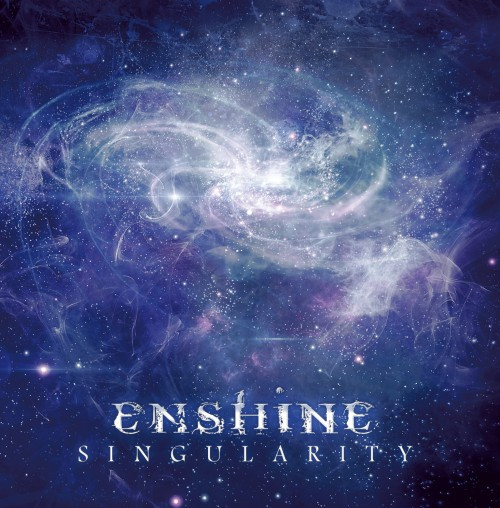
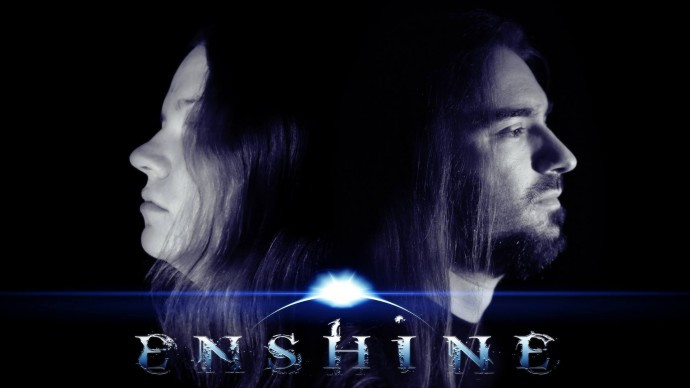
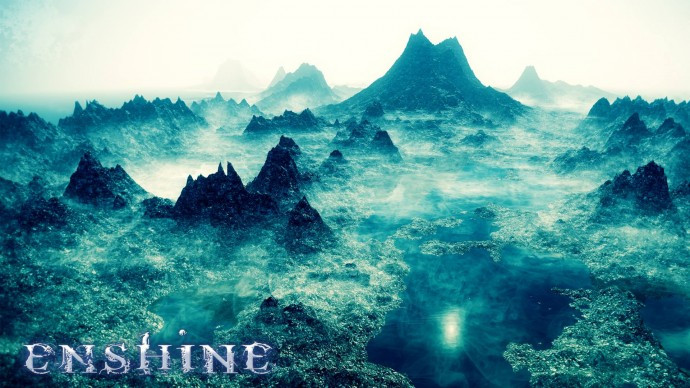
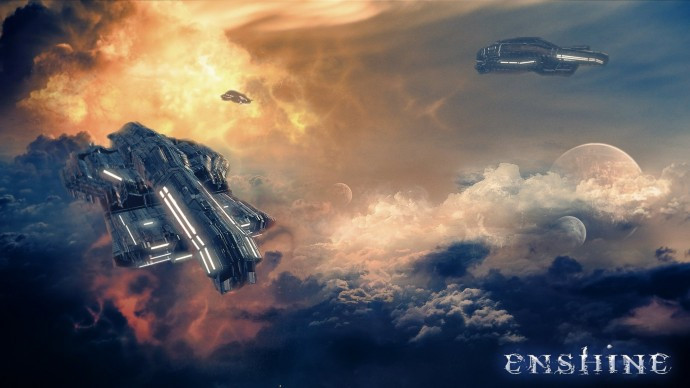
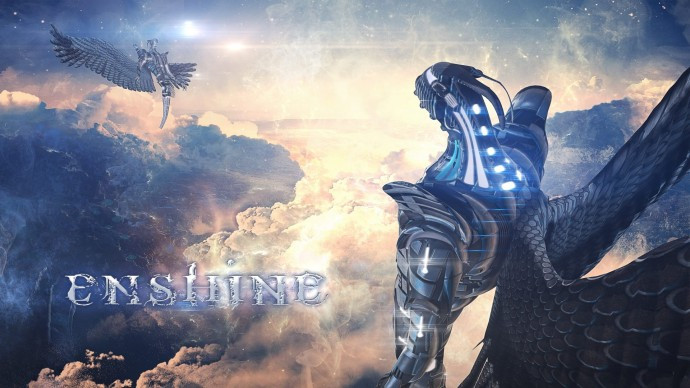
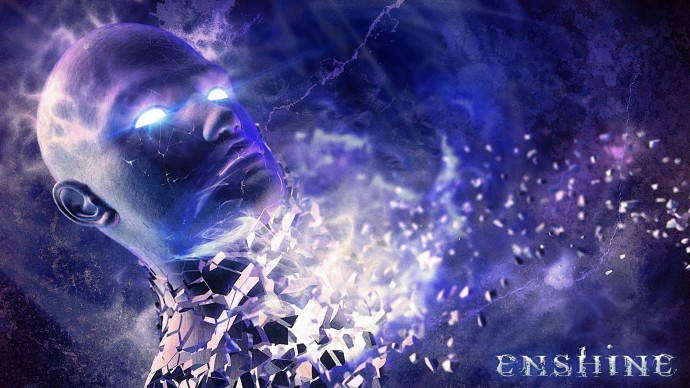
This should be my go-to dose of melodoom for the rest of the year. Great stuff.
Agree. I hadn’t listened to the whole album before reading this review, and now I too am stuck on “Echoes” (and “Resurgence”), among a lot of other great songs on the album.
Me too! What a fantastic album it is! Great review, as always!
One of the easier purchase decisions.
Very impressive, I like it 🙂
Oh thanks guys! Now I’ve got to change my Top 10 albums of 2015 list yet again!
Take these songs and speed them up a bit ad they’d be 1000 times better!
but then it wouldn’t be the same wood it!